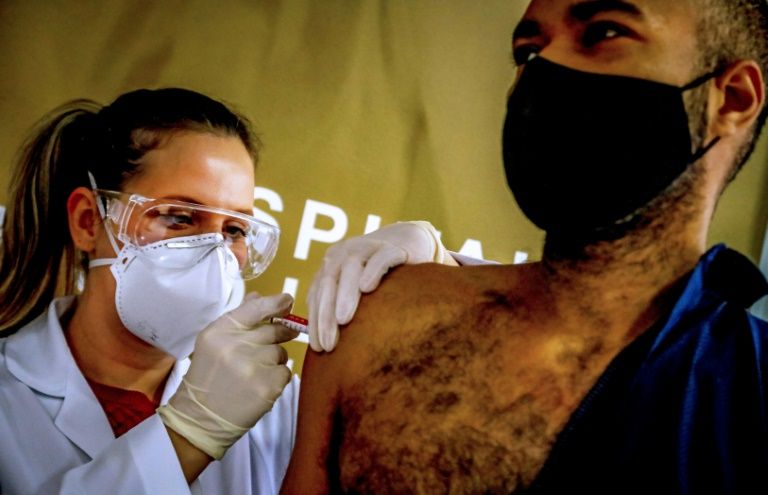UN chemical weapons inspectors leave Syria
The team of U.N. weapons inspectors investigating a massive chemical attack in Syria departed the country before dawn Saturday with their evidence ahead of a possible U.S. military strike.
The experts departed their hotel in the Syrian capital on Saturday morning, after having carried out a final day of inspections on Friday. The inspectors are seeking to determine what exactly happened in an alleged chemical weapons strike that killed hundreds in the Damascus suburbs on August 21.
The 13 inspectors, led by Ake Sellstrom, were seen loading their luggage into seven UN vehicles before setting off from their hotel, an AFP correspondent said.
The departure of the UN experts has heightened expectations of a possible international military strike against government forces.
UN officials say it may take weeks to analyse the samples gathered and to present conclusions, and UN spokesperson Martin Nesirky said that the inspectors would return to the country to investigate several other alleged chemical weapons attacks that have taken place during the country\’s two-and-a-half year uprising against President Bashar al-Assad.
U.S. President Barack Obama said Friday he has not made a final decision on attacking Syria, but made clear he thinks doing so would be in the interest of national security.
Syria has become a threat to the United States, he said, "by violating well established international norms against the use of chemical weapons, by further threatening friends and allies of ours in the region, like Israel, and Turkey and Jordan, and it increases the risk that chemical weapons will be used in the future, and fall into the hands of terrorists who might use them against us."
Speaking briefly at the White House, Obama said he has consulted with the U.S. military, members of Congress and U.S. allies, as well as the wider international community.
He also made clear his frustration with the United Nations\’ inability to agree on a course of action against Damascus.
"What we have seen so far at least is an incapacity at this point for the Security Council to move forward in the face of a clear violation of international norms," Obama said.
Russia has blocked previous attempts at the U.N. to impose sanctions on the government of Syrian President Bashar al-Assad. Russia, however, warns that Western intervention could be destablizing to the Middle East.
In a possible sign Washington may be preparing to act, a State Department official said Kerry called the foreign ministers of several countries Friday, including those in Britain, Egypt, Germany, the Netherlands, New Zealand, Saudi Arabia and the United Arab Emirates, as well as the secretary-general of the Arab League.
And Secretary Kerry said any action "will bear no resemblance to Afghanistan, Iraq or even Libya. It will not involve any boots on the ground. It will not be open-ended."
Kerry acknowledged there are risks to acting against the government of President Assad, but said the risks of not acting are greater. Not acting, he said, could embolden other countries to build and use chemical and nuclear weapons, such as Iran and North Korea.
Kerry noted that the U.N. inspectors\’ mission was to establish whether chemical weapons were used, but not to determine who used them.
As Kerry spoke Friday afternoon, the White House released an unclassified report, saying the U.S. intelligence community has "high confidence" that Assad\’s government used chemical weapons on August 21 against civilians in several Damascus suburbs.
The report says 1,429 people died in the attack, at least 426 of them children. It based the numbers on numerous sources, including witnesses, social media reports and Syrian and international medical personnel.
The U.S. also says its intelligence indicates that Syrian chemical weapons forces prepared the weapons before the attack. In the days beforehand, the U.S. "collected streams of intelligence" linked to preparations for an attack.
Many U.S. voters and several members of Congress remain skeptical about the need for any U.S. involvement in Syria. That sentiment is shared in other parts of the world.
Britain\’s lower house of parliament has rejected a motion for British participation in a military strike.
U.S. ally France, however, remains committed to a "firm and proportionate action" in response to that attack. Kerry noted that others, such as members of the Arab League, Turkey and Australia, have called for a strong response.
Kerry acknowledged that after more than a decade of war in Afghanistan and Iraq, Americans are tired of conflict.
"But fatigue does not absolve us of our responsibility. Just longing for peace does not necessarily bring it about. And history would judge us all extraordinarily harshly if we turned a blind eye to a dictator\’s wanton use of weapons of mass destruction against all warnings, against all common understanding of decency. These things, we do know," he said.
More than 100,000 people have died since the conflict erupted in March 2011 and two million have become refugees, half of them children, according to the United Nations.
Source: Agencies
[do_widget_area inner_adsbar]










